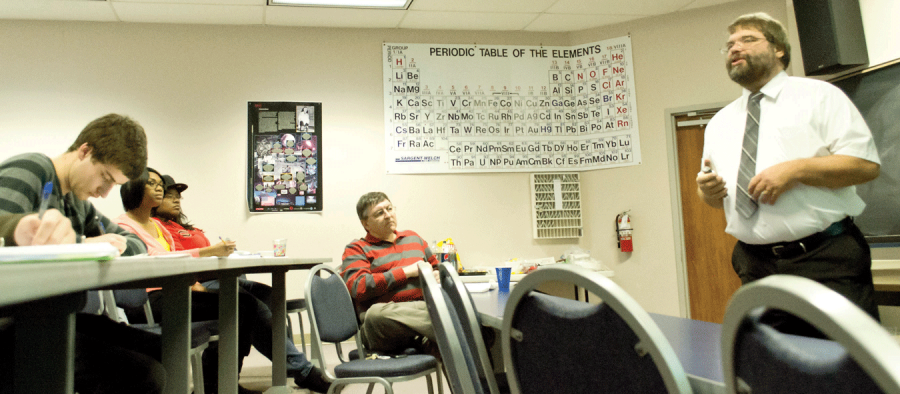Robert Carr, assistant professor of chemistry, was the guest speaker at the Chemistry Department’s science symposium on Thursday, Jan. 31. Carr spoke about Mericitabine: a possible treatment of Hepatitis-C.
Carr worked on the drug Mericitabine while at the research-focused healthcare company Roche years ago. Mericitabine is intended to cure people with Hepatitis-C. The infectious disease affects about 3.5 million people a year in the United States, and it is the most common cause of liver transplants. It is caused by an RNA virus. Carr’s role at Roche was to make improvements to the actual process of making the drug.
After the research group separated, Carr began working as a professor at Francis Marion University. Carr received his undergraduate degree in chemistry and biology from Teal College and received his Ph. D. from Penn State University.
Carr and his partner, Dieu Nguyen, explored and experimented with different processes until they discovered a way to make the process simpler and quicker.
The process originally took six months to complete. Carr’s developments cut the process down to three months.
According to Carr, the drug was designed to help the body rid itself of the virus.
During the symposium, Carr discussed what process development chemists do as well as the research and development process.
“It stops enough of the viral replication that the body’s immune system can fight off the virus and get rid of it completely,” Carr said.
Carr said that the science symposiums are important because they allow students to see how the field works and it also helps them decide if it is something they are interested in pursuing as a career.
“It’s important that students get exposure to what scientists do in real life,” Carr said.
Senior psychology major Clarissa Basco attended the symposium and said that she found it intriguing.
“I found it interesting how the development company can take their small experiments and produce them on a large scale,” Basco said.
Today, Mericitabine is still in the development phase.
